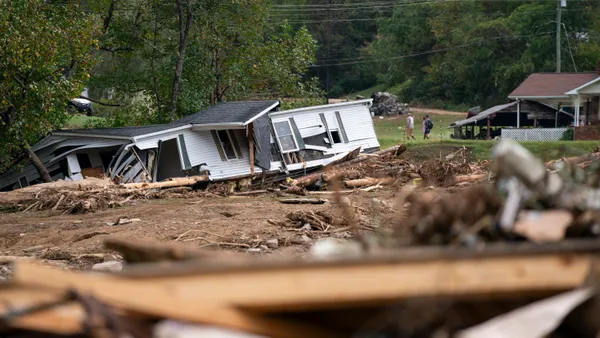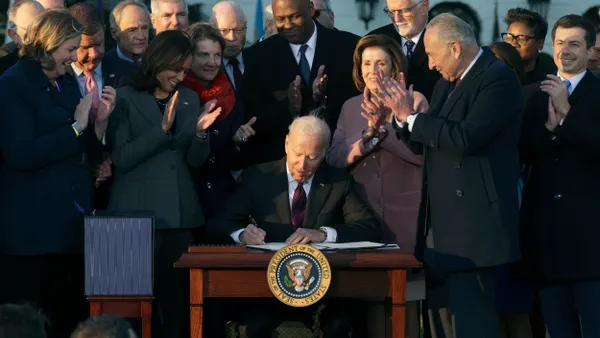Dive Brief:
- Climate Mayors, a coalition of 438 U.S. mayors working on climate change issues, announced a new 24-member steering committee, which will work to share information and recruit new members.
- Climate Mayors was formed in 2014 and saw its membership boom in 2017 after President Trump announced plans to withdraw the U.S. from the Paris climate agreement. Chaired by Los Angeles Mayor Eric Garcetti and mayoral co-chairs Madeline Rogero of Knoxville, TN; Sylvester Turner of Houston and Marty Walsh of Boston, the group seeks to have cities of all sizes uphold the Paris commitment.
- The steering committee will highlight work being done by network members, as well as "catalyze membership and more deeply engage their regions," according to a release from the group.
Dive Insight:
As the Trump administration has pulled back on climate action, cities and states have taken the lead on the issue. According to a 2018 report from America's Pledge, climate commitments from more than 3,000 sub-national partners have the country almost halfway to meeting its Paris commitment, with a predicted 17% emissions reduction of 2005 levels by 2025. That includes everything from clean energy commitments to climate-focused building codes and transportation policies.
Eugene, OR Mayor Lucy Vinis, one of the 24 mayors named to the new steering committee, told Smart Cities Dive that city-level work on climate change was always important, but that importance has increased under the Trump administration.
"The climate issue begins and ends with cities. It's cities that account for the most greenhouse gas emissions and the solutions for climate change also rest with cities," Vinis said. "In the long run, our federal government will address this, and the more we have worked out specific strategies and have measurable outcomes, the more we can inform national policy."
Vinis said that it was especially important for smaller cities like hers (population 169,000) to set climate policy, even if the impact may be relatively small. Eugene recently released its Climate Action Plan 2.0, which furthers the city's existing goals to reduce fossil fuel use by 50% from 2010 levels by 2030 and reduce greenhouse gas emissions 7.6% a year by 2100. That plan, which must be approved by city council, also includes outreach to community organizations, businesses and the University of Oregon to collaborate on energy reduction, as well as an equity panel to ensure that low-income and minority communities get climate benefits.
Vinis said being on the steering committee will help her "model for other cities of my size, to say it takes all of us." She added that information sharing, a key part of the new committee, will help cities with fewer resources set more ambitious climate plans.










